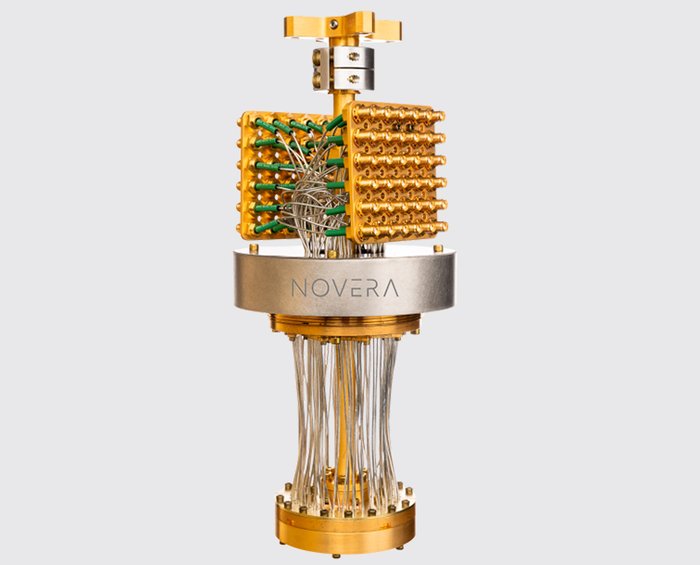
Connects decision-makers and solutions creators to what's next in quantum computing
7 Companies Using Quantum Computing
Use cases include jet engine design, identifying financial fraud and detecting disease
June 7, 2023

Rolls-Royce, Deloitte, BASF, Roche, Fujitsu, JPMorgan Chase and BMW are some of the companies carrying out early experimentation with quantum computing.
Commercial quantum computing is still years away, but that hasn’t prevented some of the world’s best-known companies from experimenting with it. In many cases, they are already getting positive results in real-life use cases using today’s noisy, intermediate-scale quantum (NISQ) devices. But, perhaps more importantly, they are preparing their business for when future, more powerful and reliable quantum computers will be able to solve problems classical computers alone cannot.
Enterprises in industries like finance, manufacturing and health care are exploring the transformative potential of quantum computing to improve decision-making, optimize processes, and drive innovation. These seven companies are using quantum computing’s computational power to tackle complex optimization, simulation and machine learning tasks.
Rolls-Royce
Enhancing Jet Engine Design
Rolls-Royce, a prominent figure in the aviation industry, is joining forces with Nvidia and Classiq, a quantum software provider. The objective of this collaboration is to use quantum circuits to enhance the design of jet engines. Rolls-Royce plans to use the new circuits to gain a quantum advantage in computational fluid dynamics. The new technology will enable the company to simulate the performance of jet engine designs by combining classical and quantum computing techniques.
Deloitte
Advancing Fraud Detection
Professional services network Deloitte is currently exploring the potential benefits of quantum computing in fraud detection and the design of advanced smart factories. In addition, the company is addressing the risks associated with quantum computing, such as its potential to compromise public key cryptography. In collaboration with SandboxAQ, Deloitte is currently assisting organizations in comprehending and mitigating their vulnerability to Shor's algorithms, which quantum computers could use to break current encryption.
BASF
Optimizing Industrial Catalysts
Multinational industrial chemicals company BASF is partnering with SEEQC, a quantum computing and semiconductor company, to explore the potential application of quantum computing in the development of novel industrial catalysts. Leveraging SEEQC's digital chip-based quantum computer, BASF aims to simulate and optimize new catalysts for the production of chemicals used in paints, adhesives, and lubricant additives.
Roche
Enhancing Diabetic Retinopathy Detection
International biotechnology firm Roche has recently partnered with quantum software and services company QC Ware to explore a ground-breaking quantum machine learning algorithm called a quantum transformer. This algorithm's purpose is to better identify the presence of diabetic retinopathy – a complication of diabetes that damages the back of the eye – in open-source libraries of medical retinal images. As well as enhancing the detection of diabetic retinopathy, Roche seeks to potentially open new avenues in medical imaging analysis and diagnostics using quantum computing.
Fujitsu
Advancing Personalized Medicine
Fujitsu recently entered into a collaborative agreement with the Barcelona Supercomputing Center to use quantum computing to advance personalized medicine. The project will use diverse datasets encompassing molecular characteristics in the genome and extensive features in X-ray images to facilitate precision diagnostic medicine. The collaboration complements the joint efforts of Fujitsu and IBM to enhance disease detection rates.
JP Morgan Chase
Mitigating Portfolio Risk
JPMorgan Chase, in collaboration with quantum company QC Ware, is harnessing the power of quantum machine learning to train models for "deep hedging." Deep hedging is an AI-driven approach used to mitigate risk and establish derivative pricing. JPMorgan Chase aims to use quantum computing to enhance the efficiency of training these models in comparison with traditional computers. The company intends to create portfolios using quantum-powered AI deep learning, thereby enhancing hedging capabilities and ultimately reducing risk.
BMW
Advancing Metal Fabrication
BMW Group has partnered with Pasqal, a manufacturer of quantum processors, to enhance its core manufacturing processes through faster simulations. BMW aims to explore the potential application of quantum computing technology in modeling metal forming applications. The partnership aims to advance the use of quantum computing in optimizing BMW's manufacturing operations.
About the Author(s)
You May Also Like






